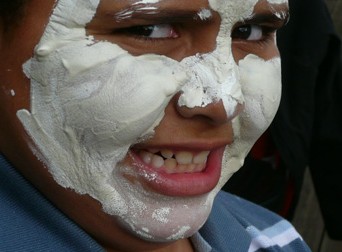Exploring Alternative Educational Treatments: A Comprehensive Overview
페이지 정보

본문
Lately, alternative academic treatments have gained traction as efficient strategies for addressing numerous learning needs and challenges faced by students. Traditional educational systems typically struggle to accommodate the various studying types, emotional needs, and behavioral points of students. As a result, educators and mother and father have more and more turned to different approaches to foster a more inclusive and efficient learning surroundings. This report delves into a number of various educational treatments, their methodologies, and their potential advantages for college students.
1. Montessori Education
The Montessori methodology, developed by Dr. Maria Montessori in the early twentieth century, emphasizes little one-led learning and arms-on experiences. In Montessori classrooms, youngsters are encouraged to explore topics at their very own pace, fostering independence and intrinsic motivation. The surroundings is carefully prepared with materials that promote sensory exploration and cognitive growth.
Advantages of Montessori education embrace:
- Personalized Learning: Every child progresses in accordance with their unique talents, allowing for tailored instructional experiences.
- Growth of Life Abilities: College students study practical skills alongside academic subjects, promoting holistic development.
- Enhanced Social Expertise: Collaborative activities encourage social interplay and teamwork.
2. Waldorf Training
Founded by Rudolf Steiner, Waldorf training focuses on nurturing the entire child—intellectually, emotionally, and bodily. This strategy integrates arts, music, and motion into the curriculum, recognizing the importance of creativity in training. Waldorf schools usually emphasize storytelling and imaginative play, significantly in the early years.
Key features of Waldorf training include:
- Emphasis on Imagination: Kids are encouraged to interact in creative pondering and downside-fixing.
- Rhythmic Structure: A predictable every day and yearly rhythm helps children really feel safe and fosters a way of neighborhood.
- Connection to Nature: Outdoor actions and nature-primarily based learning are integral, selling environmental awareness.
3. Reggio Emilia Strategy
Originating in Italy, the Reggio Emilia method is an educational philosophy that values the child as an energetic participant in their studying journey. It emphasizes collaboration, communication, and exploration. The curriculum is often driven by the pursuits of the kids, permitting for deep engagement with subjects that resonate with them.
Highlights of the Reggio Emilia method embrace:
- Challenge-Based Studying: Students have interaction in lengthy-term tasks that promote essential pondering and teamwork.
- Documentation of Studying: Teachers document kids's work and progress, providing insights into their learning processes.
- Parental Involvement: Mother and father are seen as companions in training, actively participating in the learning experience.
4. Therapeutic Colleges
Therapeutic schools cater to students with emotional, behavioral, or psychological challenges. These establishments provide a structured surroundings that combines tutorial instruction with therapeutic support. If you have any kind of questions pertaining to where and ways to utilize Ed Medication Online, you could contact us at our own site. The goal is to assist students develop coping methods, social skills, and emotional regulation whereas continuing their training.
Traits of therapeutic colleges include:
- Individualized Support: Students receive tailored interventions based on their particular needs, typically together with counseling and behavioral therapy.
- Small Class Sizes: Smaller pupil-to-instructor ratios allow for extra personalized consideration and assist.
- Focus on Psychological Well being: Emphasis on mental well being education and wellness practices helps students build resilience.
5. On-line and Blended Learning
The rise of technology in training has paved the way for on-line and blended learning fashions. These approaches combine traditional face-to-face instruction with on-line assets, allowing for higher flexibility and accessibility. Online studying will be significantly beneficial for students who thrive in self-directed environments or have distinctive scheduling wants.
Advantages of online and blended learning embody:
- Flexibility: College students can study at their own tempo and on their very own schedule, accommodating diverse lifestyles and studying preferences.
- Entry to Resources: A wealth of on-line sources and ed medication online courses can improve the educational expertise and provide opportunities for advanced research.
- Customized Studying Paths: Adaptive learning applied sciences can tailor academic content to meet individual student wants.
6. Experiential Studying
Experiential studying emphasizes learning via experience and reflection. This approach encourages students to interact in palms-on actions, real-world downside-fixing, and group involvement. By taking part in internships, service projects, and subject journeys, students develop practical skills and a deeper understanding of their topics.
Advantages of experiential studying embrace:
- Enhanced Engagement: Energetic participation fosters a deeper curiosity in the material and promotes retention.
- Actual-World Connections: College students study to apply their knowledge in actual-life conditions, bridging the hole between principle and apply.
- Development of Essential Pondering: Experiential studying encourages students to analyze conditions, make choices, and evaluate outcomes.
7. Venture-Based Studying (PBL)
Mission-Primarily based Studying (PBL) is an instructional strategy that entails students working on a project over an extended period. This method encourages inquiry, collaboration, and important considering as students deal with complicated questions or challenges. PBL usually culminates in a final product or presentation, allowing students to showcase their learning.
Key points of PBL embody:
- Interdisciplinary Studying: Projects often integrate multiple subjects, selling a holistic understanding of ideas.
- Collaboration: Students work in groups, creating communication and teamwork expertise.
- Actual-World Relevance: Initiatives are sometimes connected to real-world points, enhancing student engagement and motivation.
Conclusion
Different academic treatments supply diverse approaches to fulfill the needs of students who might not thrive in conventional instructional settings. From Montessori and Waldorf to therapeutic schools and experiential learning, these methods emphasize individualized help, creativity, and holistic improvement. As academic landscapes continue to evolve, the combination of different treatments can present priceless options for fostering scholar success and well-being. By embracing these progressive approaches, educators can create extra inclusive and efficient studying environments that cater to the unique wants of every student.

- 이전글고양이와 개의 대화 25.07.09
- 다음글Permanent Treatment For Erectile Dysfunction: A Comprehensive Case Examine 25.07.09
댓글목록
등록된 댓글이 없습니다.
